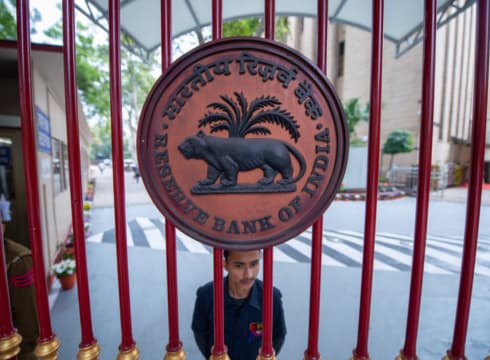In its monetary policy statement, the central bank said that it will enable additional functionalities such as offline capability and programmability for CBDC retail payments
RBI also plans to pilot proximity and non-proximity-based offline solutions in hilly and rural areas to expand the offline functionality of retail CBDCs
RBI first began piloting retail CBDC in December 2022 and achieved the target of 10 Lakh transactions a day, a year later
Inc42 Daily Brief
Stay Ahead With Daily News & Analysis on India’s Tech & Startup Economy
The Reserve Bank of India (RBI) on Thursday (February 8) announced plans to ramp up the retail rollout of the Central Bank Digital Currency (CBDC).
In its monetary policy statement, the central bank said that it will enable additional functionalities such as offline capability and programmability for CBDC retail payments.
While the aspect of programmability will facilitate transactions for specific purposes, the offline functionality will enable such payments in areas with limited internet connectivity.
“It is now proposed to enable additional functionalities of programmability and offline capability in CBDC retail payments,” said RBI.
Elaborating on this, the RBI said that programmability will enable government agencies to ensure that CBDC payments are made only for defined benefits. For corporates and enterprises, the expansion of the CBDC facility will allow them to program specified expenditures such as business travel for their employees, said the central bank.
In addition, the new facility can also be used to define geographical areas within which CBDCs could be used.
“When you do programmability, for a moment fungibility will be on hold, but we have to realise that it’s a facility that we are providing for the currency… The facility will typically be agreed by both the recipient as well as the person who puts that condition, so no programmability doesn’t militate against fungibility, it’s only a specific use binding,” RBI Deputy Governor said as per The Hindu businessline.
It is pertinent to note that, under the current CBDC retail pilot, only person to person (P2P) and person to merchant (P2M) transactions are processed using Digital Rupee wallets offered by pilot banks.
On the other hand, RBI also plans to pilot multiple proximity and non-proximity-based solutions in hilly areas, rural and urban locations to pilot the offline functionality of retail CBDCs.
“It is proposed to introduce an offline functionality in CBDC-R for enabling transactions in areas with poor or limited internet connectivity. Multiple offline solutions (proximity and non-proximity based) across hilly areas, rural and urban locations will be tested for this purpose. These functionalities will be introduced through the pilots in a gradual manner,” said the central bank in a statement.
Meanwhile, the fresh expansion of CBDC for the retail segment comes more than a year after the central bank first began piloting the project back in December 2022. A year later in December 2023, the pilot service achieved the target of 10 Lakh transactions a day.
Called the E-Rupee, the Indian CBDC leverages distributed-ledger technology and has been envisaged as a digital alternative to physical cash.
Besides, the central bank, on Thursday, also proposed the streamlining of the process for onboarding of Aadhaar Enabled Payment System (AePS) service providers. It will also introduce additional fraud risk management measures to strengthen the security and ‘robustness’ of the platform.
In addition, RBI Governor Shaktikanta Das also said that the Apex Bank will issue guidelines for a principle-based framework for the authentication of digital payment transactions.
With this, the central bank aims to spur the adoption of digital payments in the country. The National Payments Corporation India, the nodal body overseeing UPI, has set its eyes on achieving 10,000 monthly transactions on the payments infrastructure in the near future.
This comes close on the heels of UPI facing a major outage earlier this week. The NPCI then attributed the issue to ‘some technical issues’ on the side of partner banks.
Meanwhile, UPI continues to soar in numbers and clocked more than 1,220 Cr transactions worth INR 18.41 Lakh Cr in January 2024
{{#name}}{{name}}{{/name}}{{^name}}-{{/name}}
{{#description}}{{description}}...{{/description}}{{^description}}-{{/description}}
Note: We at Inc42 take our ethics very seriously. More information about it can be found here.


